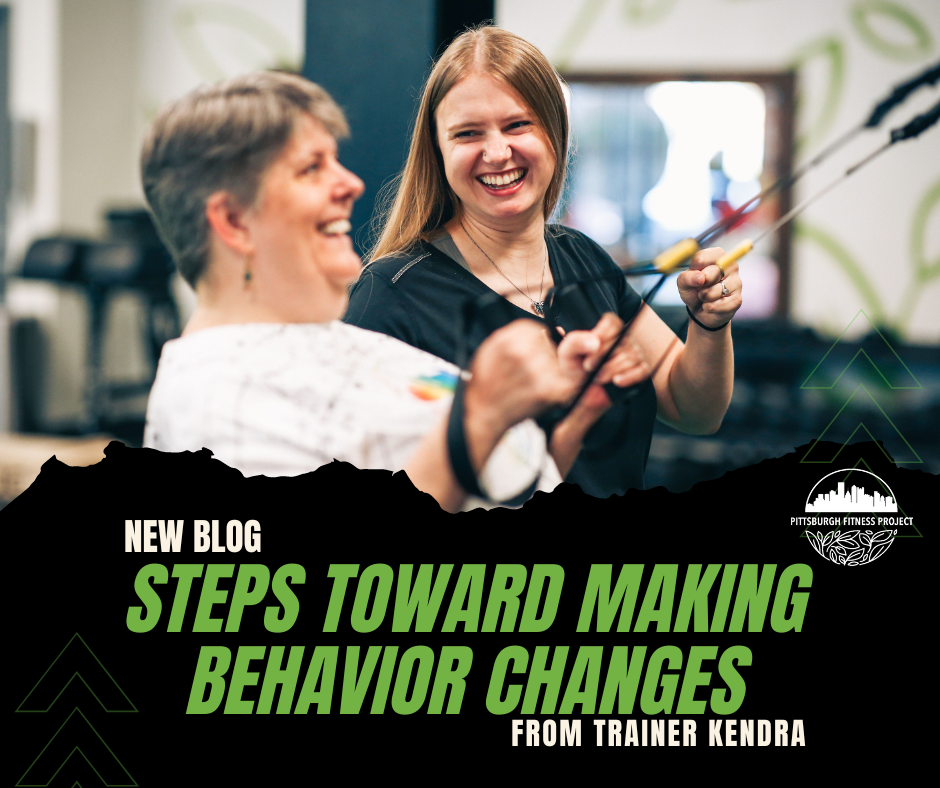STEPS TOWARD MAKING BEHAVIOR CHANGES
Starting something new can be hard when you don’t know where to start. That’s ok because you are here! Reading the title and following the link means you have an invested interest in understanding how to navigate behavior change. The great news is, as you are reading this, you are already past the first step in making lifestyle modifications to reach your goals. The Transtheoretical model stages of change is a theory that assesses an individual's readiness for change through five outlined steps.
Stage 1: Pre-Contemplation
The first of these steps is the pre-contemplation stage, where the individual does not recognize a need for change. In this phase, no thoughts or actions are being taken toward addressing or understanding an unwanted lifestyle. But you clicked the link, and you are here! That means, at minimum, you are already at stage two.
Stage 2: Contemplation
Contemplation, the second step in the Transtheoretical model, means you are aware of something you want to change. This could be anything from a bad habit to the absence of a good habit. For example, someone may be reading this right now because they are physically inactive and want to add more exercise to their life. The recognition of the lack of inactivity puts this person in the pre-contemplation stage.
Stage 3: Preparation
The exciting news is that the path from the second to the third step is an easy one. Preparation is the intent to take action. It is doing the research to understand how to make the change and creating a plan to achieve this. This step could look like reading a blog on behavior change, contacting a gym or coach, as well as sitting down and writing out goals. The work you do in this stage sets you up for success in the next one.
Stage 4: Action
The fourth step is the most exciting, as it is the action phase. The action stage is exactly as it sounds. After all the preparation from the previous steps, you have finally reached the point where you can feel confident in actively making the change you desire. A person in this stage has recognized something they want to change, actively sought information on how to make that change happen, and set up a plan so they can start actively executing that change. This is the stage where you start attending group exercise classes or begin personal training sessions. It may feel like this is the last stage and that you have achieved your goal, but there is one more important stage left in the Transtheoretical model. The Maintenance stage.
Stage 5: Maintenance
Maintenance in this context is defined as being consistent in your actions for a minimum of six months. The difference between the fifth maintenance stage and the fourth action stage is the duration of the achievement. Taking action is accomplishing your goal in the short term, but maintenance adds the element of consistency and accomplishes your goal in the long term. The maintenance stage is where you begin to notice the benefits of your change. Pulling from the earlier example where an inactive individual showed a desire to add an exercise routine to their lifestyle, their maintenance stage is accomplishing a regular routine of exercise every week through six months. From this, they have officially achieved their goal of adding physical activity into their lifestyle and are seeing the increased health benefits it has given them.
How to Achieve Maintenance
To achieve maintenance, it is important to rely on the system you created along the way in order to help stay consistent. This can look like working with a coach, having a family member or friend provide accountability, or introducing other internal and external motivators. Create structure for yourself, because jumping from the pre-contemplation to the maintenance stage will often result in inconsistency. Skipping stages builds a weak foundation with no plan for how to proceed or achieve goals. Take the time you need to construct a strong path towards what you want and feel confident in your ability to achieve it, and then keep achieving it!
Looking for an accountability coach? Check out our team of trainers and let’s set up an assessment!

